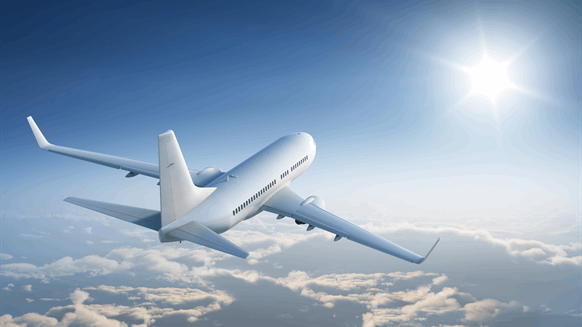Roshni Sharma is one of the many American travelers who forego the traditional road trip over Memorial Day weekend in favor of flying.
The 27-year-old nurse from Alexandria, Virginia, usually drives to her parents' home in Pennsylvania on Memorial Day, but this year she and her husband plan to fly to Austin, Texas, to visit far-away friends.
“Driving to Texas would take two to three days each way, and this entire trip is two to three days, so flying is quicker,” Sharma said.
Choices like Sharma's are likely to reshape the summer refined-products market, where rising demand for jet fuel is outpacing gasoline, a key strength. The number of air travelers over Memorial Day weekend could be the highest in the past 20 years, according to the American Automobile Association, up 4.8% from last year and 9% from 2019.
Overall oil demand is also expected to rise in the coming weeks as the peak driving season in the U.S. begins over the Memorial Day weekend. JPMorgan Chase & Co.'s global commodity research team projected earlier this month that global crude oil consumption will increase by 2.8 million barrels per day from the end of April through the end of August. Jet fuel demand is expected to increase by 430,000 barrels per day over the same period, the company said in an emailed statement on Friday.
Already, demand for jet fuel has surged to the highest four-week average for this time of year since 2019, according to U.S. government data. U.S. passenger numbers rose about 1.5% in the week ended May 17 from the previous week, and BloombergNEF expects passenger numbers to continue to rise toward the end of the month.
“We see jet fuel as the fastest-growing fuel in the world,” said Austin Lin, an analyst at Wood Mackenzie. U.S. jet fuel demand could grow about 5% in 2024, while global consumption could grow at a slightly higher rate due to strong U.S. consumer spending and China's delayed recovery from the pandemic, he said.
The trend may offer some relief to oil bulls, who are hoping rising consumption will spark a summer rally to help prices break out of a tight range as Middle East risks fade.OPEC and its allies are expected to meet on June 2 to extend supply cuts, which could be a new catalyst.
The strength in jet fuel contrasts with the weak outlook for gasoline. U.S. road fuel demand rose this week but remains at a two-year seasonal low. Global gasoline demand is expected to fall by about 100,000 barrels per day on average in 2025, according to a JPMorgan forecast.
The downturn sunk the gasoline bull market to its lowest in six months last week as money managers failed to see profits on their spring bets on gasoline. Traders still expect a seasonal upswing, but that momentum may fade as consumers lose patience with gas prices.
Meanwhile, as coronavirus restrictions are lifted and international travel picks up, average flight distances are increasing and so are the number of passengers, which analysts say more than offset the increased efficiency of jet engines.
AAA spokesperson Aisha Diaz said that since the COVID-19 pandemic, consumers have shown a preference for spending on experiences, with more travelers shelling out for once-in-a-lifetime trips to Europe and Asia.
Wood Mackenzie's Lin believes that in the long term, demand for jet fuel will benefit from this cultural shift.
“People haven't felt a lot of pain in their spending,” Lin said. “It hasn't affected the post-COVID spending boom. Nothing bad has happened, so we're seeing a little bit of adaptive behavior coming out of that.”


